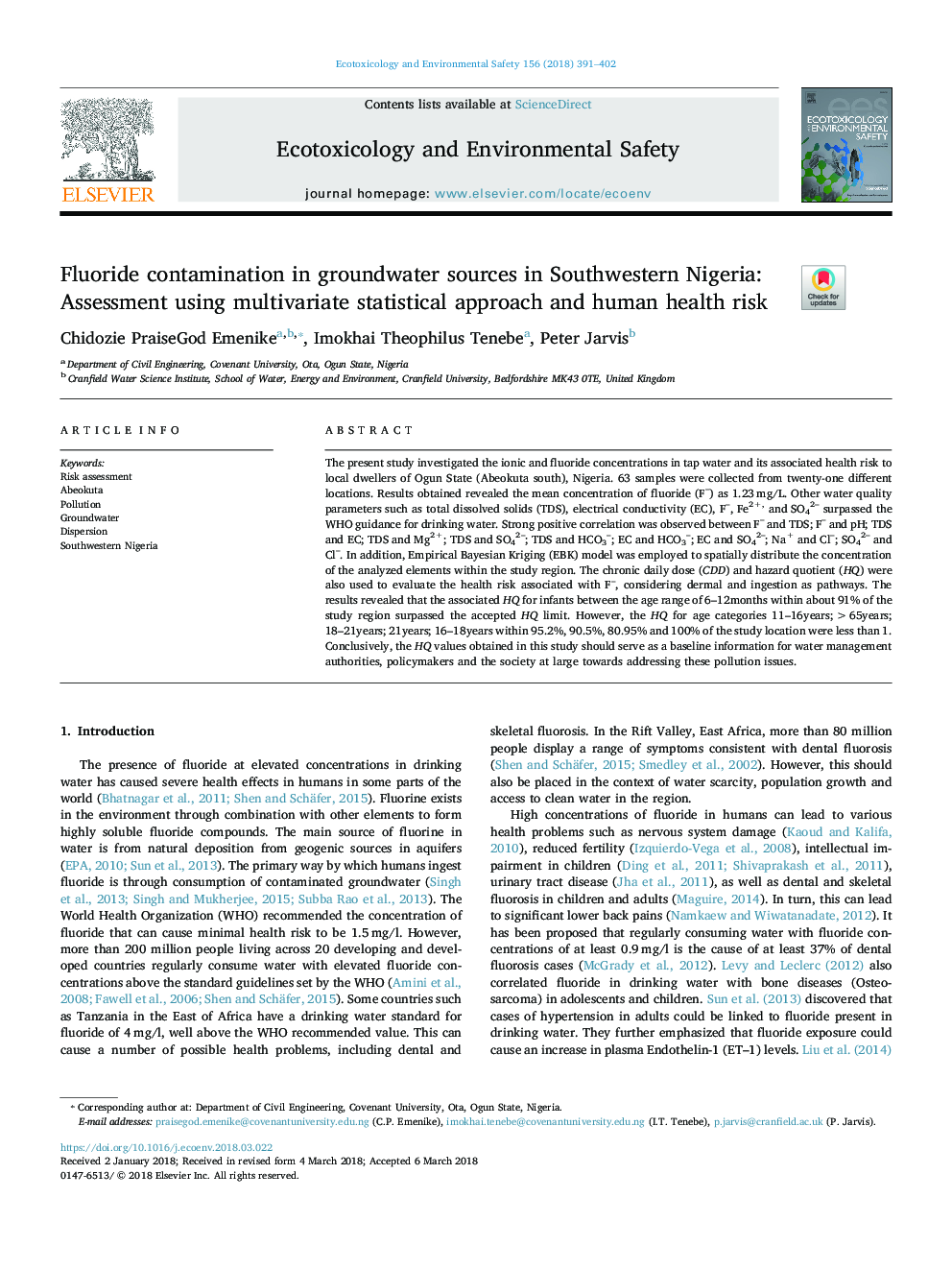| Article ID | Journal | Published Year | Pages | File Type |
|---|---|---|---|---|
| 8854077 | Ecotoxicology and Environmental Safety | 2018 | 12 Pages |
Abstract
The present study investigated the ionic and fluoride concentrations in tap water and its associated health risk to local dwellers of Ogun State (Abeokuta south), Nigeria. 63 samples were collected from twenty-one different locations. Results obtained revealed the mean concentration of fluoride (F-) as 1.23â¯mg/L. Other water quality parameters such as total dissolved solids (TDS), electrical conductivity (EC), F-, Fe2+, and SO42- surpassed the WHO guidance for drinking water. Strong positive correlation was observed between F- and TDS; F- and pH; TDS and EC; TDS and Mg2+; TDS and SO42-; TDS and HCO3-; EC and HCO3-; EC and SO42-; Na+ and Cl-; SO42- and Cl-. In addition, Empirical Bayesian Kriging (EBK) model was employed to spatially distribute the concentration of the analyzed elements within the study region. The chronic daily dose (CDD) and hazard quotient (HQ) were also used to evaluate the health risk associated with F-, considering dermal and ingestion as pathways. The results revealed that the associated HQ for infants between the age range of 6-12months within about 91% of the study region surpassed the accepted HQ limit. However, the HQ for age categories 11-16years; >65years; 18-21years; 21years; 16-18years within 95.2%, 90.5%, 80.95% and 100% of the study location were less than 1. Conclusively, the HQ values obtained in this study should serve as a baseline information for water management authorities, policymakers and the society at large towards addressing these pollution issues.
Related Topics
Life Sciences
Environmental Science
Environmental Chemistry
Authors
Chidozie PraiseGod Emenike, Imokhai Theophilus Tenebe, Peter Jarvis,
